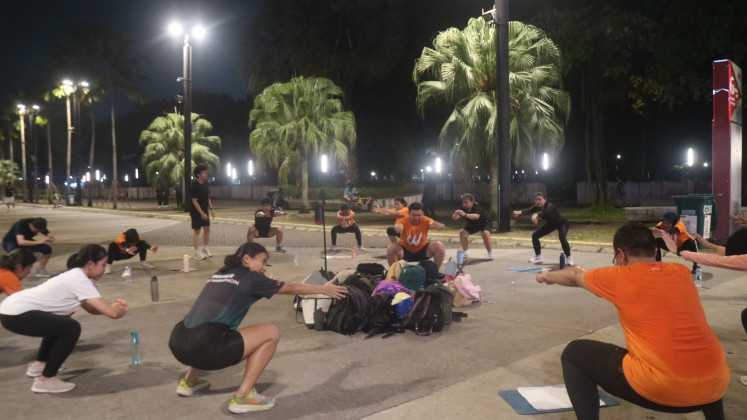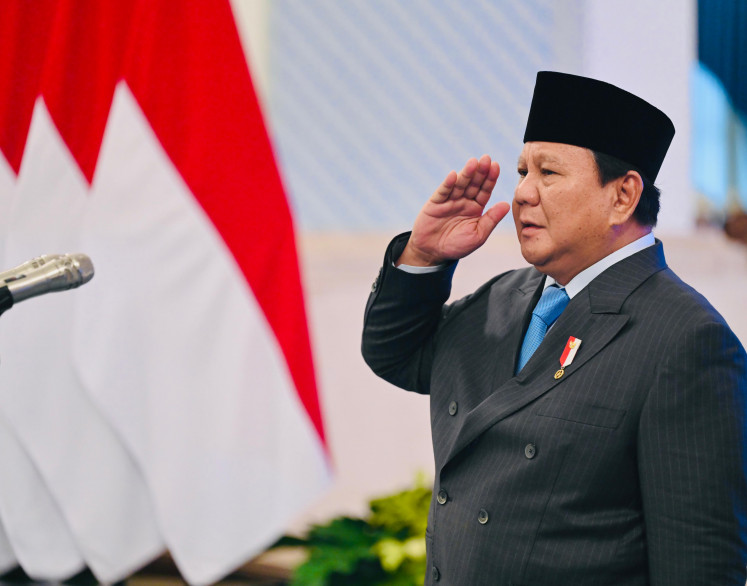Popular Reads
Top Results
Can't find what you're looking for?
View all search resultsPopular Reads
Top Results
Can't find what you're looking for?
View all search resultsDrug self-sufficiency goals: How can policymakers plan better for the long-term
The new public procurement policies that are currently in effect impose import substitution and will gradually squeeze international research-based companies out of the Indonesian market.
Change text size
Gift Premium Articles
to Anyone
N
otwithstanding the overwhelming (85 percent) market share of its domestic players, Indonesia is on a quest to become self-sufficient in drug manufacturing.
While the COVID-19 pandemic did amplify the country’s excessive import dependence for active pharmaceutical ingredient (API) (up to 90 percent), the underlying structural causes for such a situation have gone largely unaddressed.
Over the past 20 years or more, advantageous policies have allowed Indonesian companies to import bulk drugs from China and India (cheaper by 30 percent on average, compared to domestic products) uninterruptedly and to take up the lion share at the expense of the local industrial competitiveness.
As a matter of fact, local players had no reason to buy into the production of API, or to set up fermentation units. Policies such as the Health Ministerial Decree No. 1010/2008 on drug registration and public procurement protectionism, allowed them to gain greater sales without investment.
In light of the above, assessing and analyzing both the structure and the performance of local firms should be the starting point of the country’s plan for self-sufficiency in drug manufacturing.
In my view, instead of the current blanket policy approach (TKDN), such a plan should take into account the specificities of the pharmaceutical industry, as well as the supply- and demand-side issues. Likewise, the supply-side analysis needs to cover all links in the industry chain, from research and development to the production and distribution of vaccines and medicines.
On the demand side, the plan for self-sufficiency in drug manufacturing would gain a lot by paying special consideration to the public primary healthcare system and its role in strengthening the access to affordable vaccines and medicines.
The new public procurement policies that are currently in effect impose import substitution and will gradually squeeze international research-based companies out of the Indonesia market. This will ultimately hinder patients' access to innovative medicines and technologies.
As the country is recovering from the pandemic and steadily endeavoring to address its repercussions, more long-term inter-sectoral planning is needed. A sustained government’s commitment to opt for self-sufficiency in producing domestic pharmaceuticals in a timely manner and to meet all regulatory requirements should be mainstreamed and reflected in all national policies in order to support a competitive national industry and strengthen equitable access for all.
International actors can play an important role by connecting local producers to the relevant global networks, which may play a critical part in accessing the relevant technology, and facilitating the development and further strengthening of such networks.
Collaboration is also needed for mid to long term investment in building the capacity of local manufacturers and national drug regulatory authorities.
Lastly, success of these initiatives needs to be defined in public health terms, not in the percentage of restricted import. Stakeholders should engage in a deliberative process to define success in the national context, with considerations regarding access to medicines and improved health outcomes at the core.
***
The writer is a public health physician, president director of PT Roche Indonesia and International Pharmaceutical Manufacturers Group (IPMG) chair. The opinions expressed are his own.










